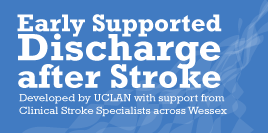 |
Apraxia |
Recommendations 6.20.3.1
A. Any stroke patient who has marked difficulty articulating words should be formally assessed for apraxia of speech and treated to maximise articulation of targeted words and rate of speech to improve intelligibility
B. Any stroke patient with severe communication difficulties but reasonable cognition and language function should be assessed for and provided with appropriate alternative or augmentative communication strategies or aids
Sources 6.20.3.2
A. Aichert and Ziegler 2008; Brendel and Ziegler 2008; Wambaugh et al. 2006a; Wambaugh et al. 2006b; Consensus
B. Consensus; Wambaugh et al. 2006a; Wambaugh et al. 2006b
Recommendations 6.43.1
A. Any person who has difficulties in executing tasks despite apparently adequate limb movement should be assessed formally for the presence of apraxia
B. Any person found to have apraxia should:
- Have their profile of impaired and preserved action abilities determined using a standardised approach (eg Test of Upper Limb Apraxia (TULIA))
- Have the impairment and the impact on function explained to them, their family, and their treating team
- Be given therapies and/or taught compensatory strategies specific to the deficits identified ideally in the context of a clinical trial
Sources 6.43.2
A. Consensus
B. Vanbellingen et al. 2010; Vanbellingen et al. 2011; West et al. 2008
 |